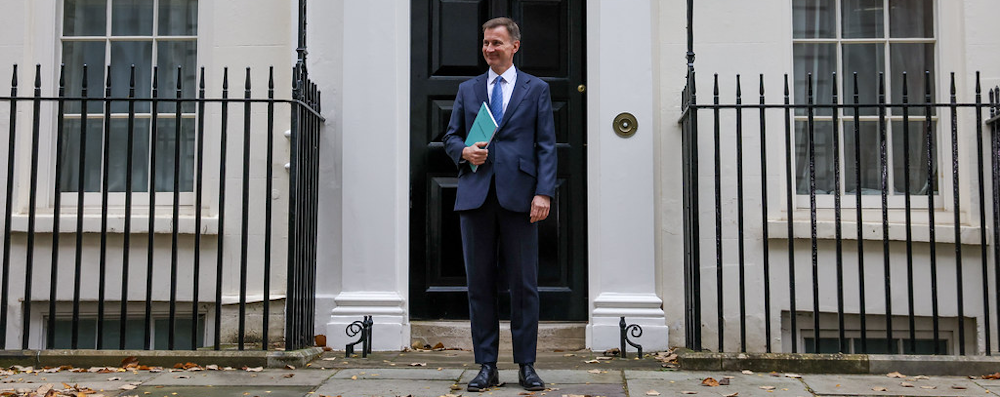T: 01822 851370 E: [email protected]
Visit RSN Survey about life in rural England to find out more.
Autumn Statement 2023: What does it mean for rural?

It’s been nearly a week since the Chancellor delivered his Autumn Statement and RSN Chief Executive Kerry Booth and her team have been digesting what it means for rural communities and the organisations that serve them.
There were 6,366 words in the Chancellor’s Autumn Statement; not one of them was ‘rural’. It seems like a good starting point for our analysis of the speech and the impact it will have on rural communities. A lot was promised in this statement, but how will it help people living in rural areas?
Let’s start with the increase in the minimum wage, which is absolutely welcomed, especially given the generally low wage economy across rural areas. However, the 9.78% increase (from £10.42 to £11.44) for some local government services will represent a substantial above inflation cost increase meaning they will have to find more money for wages when they are already underfunded by central government. This comes back to the way the government allocates funding and the fact that there is not an equitable formula in place. Until the government address fair funding for local authorities, positive measures like the increase in the minimum wage won’t be truly felt by everyone. In addition, for the vast numbers of small businesses in rural areas, particularly in the tourist industry, a greater wage bill will put pressure on those businesses who may need to increase prices to make ends meet.
We are also welcoming the 2 percentage point cut from 20% to 18% for National Insurance contributions from January 2024, again helping people working in rural areas where the wages are historically lower. We also welcome the cut to National Insurance contributions for the self-employed, given the high number of self-employed in rural areas.
In terms of affordable housing, the increase in the local housing allowance to the thirtieth percentile from April 2024 will help those in rented accommodation who are on low wages and on benefits. However rental prices in rural areas are traditionally higher than urban areas and so these renters still pay a premium to living in a rural area.
For the rural economy, the continuation of the 75% business rate relief for retail hospitality and leisure sectors in 24/25 up to £110,000 cash cap is very important given the high numbers of such businesses in rural areas. The business rate freeze in the small business multiplier in 24 /25 is also very welcome for the same reasons. Similarly, the VAT expanded scope for energy savings materials relief from 2024 should be beneficial.
Focusing specifically on local government, the news was also not great for local authorities with a long-term freeze in capital investment in the public sector. Furthermore, no new money was announced for local government in the Autumn Statement, as a result the RSN is continuing to campaign for fairer funding, having provided briefings in the last week to rural MP’s ahead of a Westminster Hall Debate this week on the issue.
One of the big announcements was around cutting red tape in the planning sector. The Chancellor says he intends to do that by giving local authorities the ability to increase planning fees for applications from larger businesses to recover the full costs. Good news on the face of it but these fees will have to be returned if the timelines are not achieved. RSN has long raised the point about the capacity of rural councils, including in respect of planning, and this new measure is likely to put additional strain on already under resourced departments. It is also likely to cause additional work for other areas of local councils as processing the refund of fees will place a further drain on resources.
We wait with anticipation to see how all these measures will be implemented and welcome any comments or feedback from Members on what impact they will have on providing services. Crucially, we would like to know if these measures will make services better for our rural communities. Please drop me a line via email with your thoughts.
Kerry Booth
RSN Chief Executive



